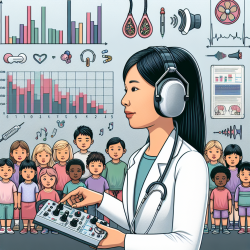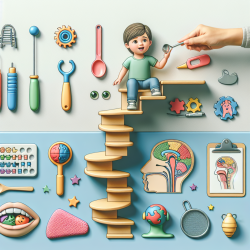Understanding the Impact of Noise Exposure on Young Adults
As speech-language pathologists, we are committed to improving communication outcomes for children. A recent study titled Effects of noise exposure on young adults with normal audiograms I: Electrophysiology offers insights that can enhance our understanding of auditory processing and guide our therapeutic approaches. The study, conducted by Prendergast et al., explores the effects of noise exposure on auditory brainstem response (ABR) and frequency-following response (FFR) in young adults with normal hearing.
Key Findings from the Study
The study involved 126 participants aged 18-36, examining their lifetime noise exposure and its impact on auditory processing. Here are the main findings:
- No significant evidence of noise-induced cochlear synaptopathy was found in young adults with normal audiograms.
- Elevated 16-kHz audiometric thresholds were observed in females with higher noise exposure, suggesting a potential sex difference in vulnerability to noise.
- The study found no significant correlation between noise exposure and ABR wave amplitudes, challenging previous assumptions about noise-induced cochlear synaptopathy in humans.
Implications for Practitioners
For practitioners, these findings highlight the complexity of diagnosing and understanding noise-induced hearing issues in young adults. Here are some considerations for practice:
- Focus on Comprehensive Audiological Assessments: While traditional audiograms may not reveal hidden hearing loss, incorporating high-frequency audiometry and electrophysiological measures like ABR and FFR can provide a more complete picture of auditory health.
- Consider Gender Differences: The study suggests that females may be more susceptible to high-frequency hearing loss due to noise exposure. Tailoring assessments and interventions to account for gender differences can improve diagnostic accuracy and treatment outcomes.
- Promote Hearing Conservation: Educating young adults about the risks of noise exposure and advocating for hearing protection can prevent potential auditory damage and preserve hearing health.
Encouraging Further Research
The study underscores the need for further research to explore the long-term effects of noise exposure and the potential development of cochlear synaptopathy with age. As practitioners, staying informed about emerging research can enhance our ability to make data-driven decisions and improve outcomes for our clients.
To read the original research paper, please follow this link: Effects of noise exposure on young adults with normal audiograms I: Electrophysiology.










